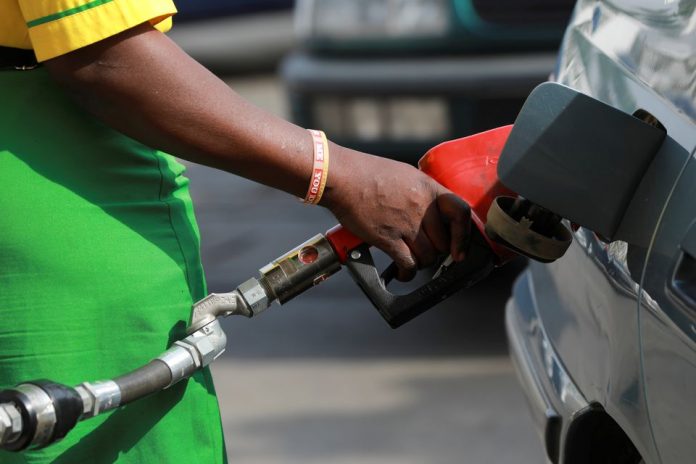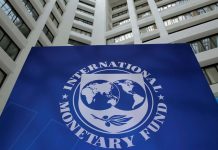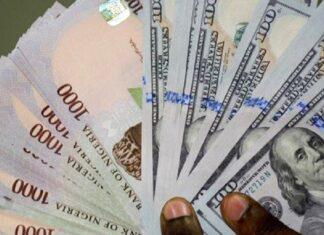According to the report, the elimination of the subsidy must be accompanied by a “aggressive reform effort” that could contribute more to growth than a prolonged period of high oil prices.
According to the World Bank Update, the poorest 40% of Nigerians consume less than 3% of the country’s total available Premium Motor Spirit, with the wealthy benefiting more from the subsidies.
In November, the World Bank became the second international lender to advise Nigeria to remove the fuel subsidy. Nigeria must completely eliminate the subsidy by early 2022, according to the International Monetary Fund.
Read Also: Buhari govt mulls paying Nigerians transport allowance after fuel subsidy removal in 2022
“Complete removal of regressive fuel and electricity subsidies, combined with adequate compensatory measures for the poor, is a near-term priority,” the IMF said in its preliminary findings following its official staff visit to the country under Article IV Mission.
In the first nine months of 2021, the federal government spent at least $2.1 billion on fuel subsidies (approximately N864 billion at N410 per dollar).
“Reducing inflation, improving exchange-rate management, and eliminating the PMS subsidy are all urgent priorities for the next three to six months…”
In a report, the World Bank stated that “improving infrastructure” is a priority.
‘A transport grant will be given to 40 million Nigerians.’
Fuel and electricity subsidies are not included in the spending plans for 2022, according to Minister of Finance, Budget, and National Planning Zainab Ahmed.
Ahmed, like the World Bank and the IMF, called the subsidies “retrogressive.”
After fuel subsidies are removed, poor Nigerians will receive N5,000 per month as a transportation grant, according to Ahmed.
Read Also: Finance Minister Has Assured ASUU That Govt Is Ready To Pay Now – Lawmaker
According to the Minister, the Federal Government will phase out fuel subsidies by 2022 and provide a monthly transportation grant of N5,000 to the poorest Nigerians.
Ahmed, who also spoke at the World Bank’s Nigeria Development Update launch in Abuja, estimated that 30 to 40 million Nigerians, the country’s poorest, would benefit from the grant.
Ahmed also mentioned that the removal is scheduled for June 2022, but that he hoped it would be completed sooner to comply with the PIA.
The position of state governments
Malam Nasir El-Rufai, the governor of Kaduna State, says state governments are ready to assist the federal government in ending the fuel subsidy regime.
El-Rufai gave the assurance during a presentation of the World Bank Nigeria Development Update, November 2021 edition, titled “Time for Business Unusual,” on Tuesday in Abuja.
He stated that unless the fuel subsidy regime is abolished, 35 of the 36 states of the federation may be unable to pay salaries in 2022.
Read Also: Nigerians can’t survive another four years under the APC, say PDP governors
According to him, kerosene, which is most important to the general public, has long been regulated, while diesel, which is most important to transporters, has also been regulated.
Transition management that is innovative
Fuel subsidies, according to Prof. Uche Uwaleke, Chairman of the Chartered Institute of Bankers of Nigeria (CIBN) Abuja branch, do not benefit the poor.
“The government’s dwindling revenue has been drained by fuel subsidies. These subsidies primarily benefit the wealthy, and they have become conduits for massive corruption over time,” he said.
“Considering what the government could have done with the huge amount that is sunk into subsidies annually,” he says, “the opportunity cost is high.”
“As a result, the call to eliminate fuel subsidies is appropriate. It will pave the way for more investments in the petroleum industry’s downstream sector, in line with the PIA,” he added.
He did say, however, that the federal government should provide strong palliatives.
“However, the government should be prepared to devise compensation schemes to mitigate the impact of the removal of the fuel subsidy on the Nigerian people.” In addition to the N5,000 cash transfer, the government should work out a deal with organized labor to provide mass transit vehicles.
Read Also: Senate Gives Committee Today’s Deadline to Finish Budget Defense for Fiscal Year 2022 Appropriation Bill
Before implementation, this should be in place,” he advised.
Dr. Muda Yusuf, an economist and CEO of the Centre for Promotion of Private Enterprise (CPPE), has identified the need to manage the transition from the current pricing regime to a fully deregulated arrangement in a creative manner.
Yusuf, the immediate past Director-General of the Lagos Chamber of Commerce and Industry (LCCI), said it’s a tricky issue that could pose a serious challenge to the government if it’s not handled strategically.
The reality, he claims, is that public opinion is opposed to deregulation of petroleum product pricing or the elimination of petroleum subsidies.
“Surprisingly, some elites are not persuaded of the subsidy removal’s justification. The risk of a social and political backlash is high if the policy transition is not properly managed. There is no doubt a strong economic and business case for eliminating fuel subsidies, but the social and political contexts are equally important,” he said.
“Clearly, the subsidy is unsustainable, which is why there is a need to speed up engagement with relevant stakeholders in order to develop a policy transition strategy that is both sustainable and realistic.” “Not only should the conversation be economic, but also social and political,” he said.
He also stated that the proposal of direct cash transfers to vulnerable segments of the population is not a bad idea, but that the database’s credibility and inclusivity must be ensured.
Mr. Paul Alaje, Lead Economist and Enterprise Partner at SPM Professionals, also commented on the removal, saying, “I doubt the government’s ability to end the subsidy in Nigeria because of a number of factors.” The impact on disposable income is one of the factors.”
Read Also: Nigerians Pleading With APC To Take Them Back To Pre-2015 Period —Shagari, Ex-Minister
According to him, successive governments in Nigeria have attempted to end subsidies, but have only been able to do so when the global price of crude drops. “In reality, the government finds it difficult to end the subsidy when global oil prices rise.”
“When we have one or two producers locally, the subsidy should be removed.” “At that point, subsidy elimination would make sense,” he said.
Join Television Nigerian Whatsapp Now
Join Television Nigerian Facebook Now
Join Television Nigerian Twitter Now
Join Television Nigerian YouTUbe Now





